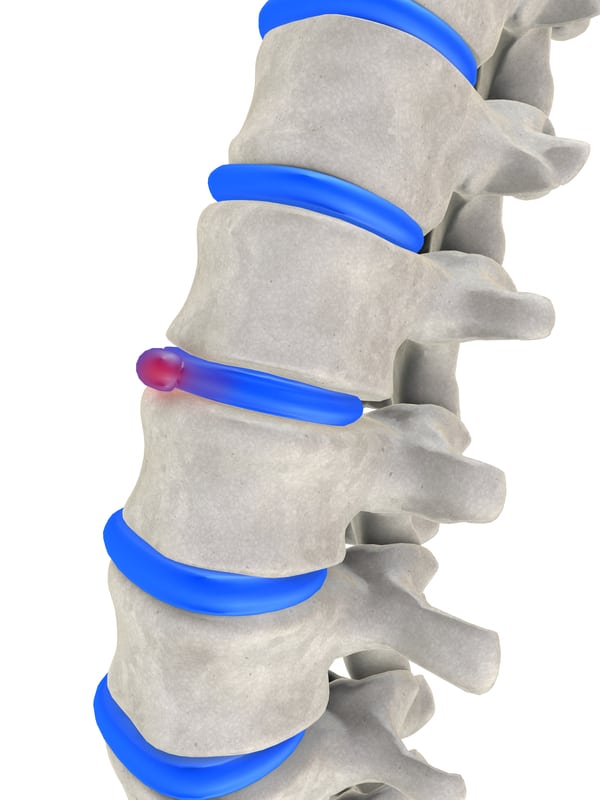 If you are suffering from chronic back pain, herniated disc treatment may be helpful. To determine if you are indeed suffering from a herniated disc, contact our office today to schedule an initial consultation. We can help you determine the source of your back pain and work to find a herniated disc treatment option that works well for you.
If you are suffering from chronic back pain, herniated disc treatment may be helpful. To determine if you are indeed suffering from a herniated disc, contact our office today to schedule an initial consultation. We can help you determine the source of your back pain and work to find a herniated disc treatment option that works well for you.
Discs are rubbery cushions between individual vertebrae that stack up to make your spine. They have a soft, jelly-like center and a tougher exterior. A herniated disc refers to a problem with one of these discs, meaning the softer center was able to push its way out of the tougher exterior through a crack. This condition is sometimes also called a ruptured disc or slipped disc.
The majority of people who suffer from a herniated disc get better over time with conservative treatment. There are several treatments available to reduce the pain and discomfort associated with herniated discs, ranging from bedrest to surgical options. Most individuals can expect an at-home exercise regimen as part of their herniated disc treatment plan as well.
Medications for Herniated Discs
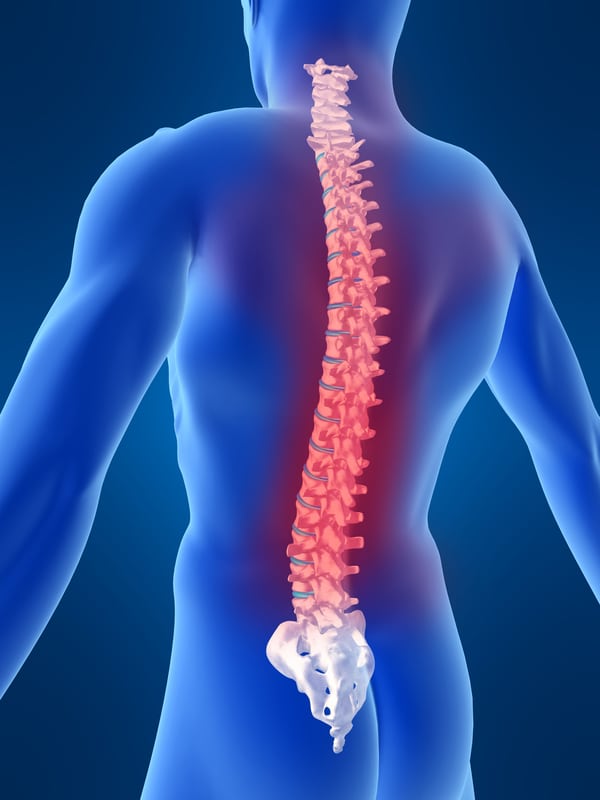 A herniated disc often compresses the surrounding nerve roots, which causes swelling and pain. Each individual’s symptoms vary in severity, therefore, your medications will be prescribed based on your individual needs.
A herniated disc often compresses the surrounding nerve roots, which causes swelling and pain. Each individual’s symptoms vary in severity, therefore, your medications will be prescribed based on your individual needs.
Over-the-Counter Medications:
- Acetaminophen – This medication, such as Tylenol, can be a good first-line defense for pain, however, it does not relieve inflammation (swelling).
- Non-Steroidal Anti-Inflammatory Drugs (NSAIDs) – Examples of NSAIDs include ibuprofen, aspirin, or naproxen. They relieve pain and decrease inflammation.
Prescription Medications:
- Prescription NSAIDs – If over-the-counter varieties are unsuccessful for relieving your pain, NSAIDs that are prescription strength may be prescribed.
- Muscle Relaxants – Often, spinal muscle spasms occur related to a herniated disc. In those cases, muscle relaxants are helpful to relieve the associated pain. Common side effects include dizziness and sedation.
- Narcotics – When pain is severe and is unrelieved by other measures, narcotic pain medications may be prescribed. Examples of these medications include those with codeine, an oxycodone-acetaminophen combination, or hydrocodone-acetaminophen combination. Narcotics are prescribed cautiously, as they have the potential to be addicting. They also may cause side effects such as nausea, sedation, confusion, and constipation.
- Medications for Nerve Pain – These medications such as gabapentin, pregabalin, duloxetine, tramadol, and amitriptyline are often effective in relieving pain from nerve damage. These medications have milder side effects than narcotics, therefore, they are commonly being used as first line prescription medications for herniated discs.
- Oral Steroids – Also known as corticosteroids, they may be effective in reducing inflammation. They are only prescribed for short-term use as many adverse effects have been associated with prolonged use of steroids.
Physical Therapy for Herniated Discs
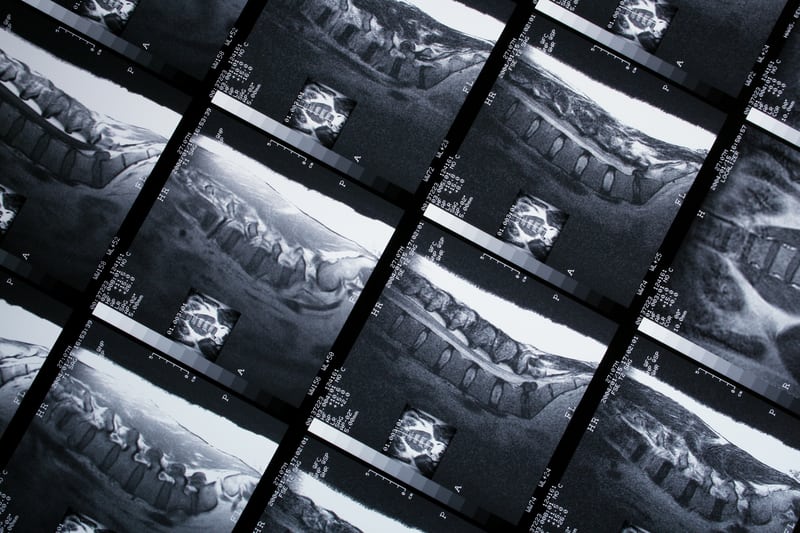 Often, physical therapy has a great role in herniated disc recovery. Methods used can offer immediate pain relief and can teach you how to condition your body to prevent any further injuries. There are a variety of techniques used, typically people begin with passive treatments. These relax your body and include hot and cold therapy, deep tissue massage, hydrotherapy, and electrical stimulation.
Often, physical therapy has a great role in herniated disc recovery. Methods used can offer immediate pain relief and can teach you how to condition your body to prevent any further injuries. There are a variety of techniques used, typically people begin with passive treatments. These relax your body and include hot and cold therapy, deep tissue massage, hydrotherapy, and electrical stimulation.
Once the body begins to heal, active treatments can begin that help strengthen your body and prevent pain. Some examples of these treatments include flexibility training, muscle strengthening, core stability to strengthen your abdominal muscles that help support your spine, and active hydrotherapy such as water aerobics.
Exercise for Herniated Discs
Exercise, in addition to physical therapy, is a common component of treating herniated discs. At first, a herniated disc may need time to rest in order to relieve pain. However, prolonged inactivity should be avoided as your muscles need conditioning to aid the body in the recovery process. If exercise is avoided, your body may not respond optimally to treatment. Your physical therapist can help develop an at-home exercise regimen.
Chiropractic Care for Herniated Discs
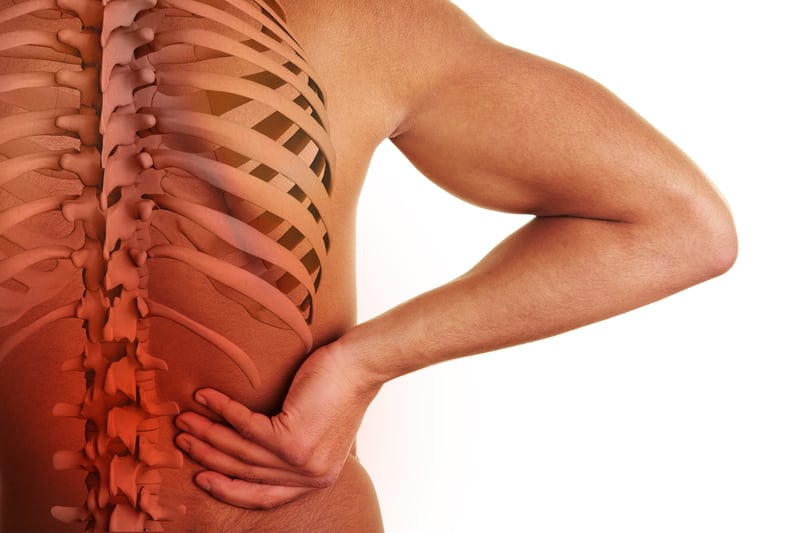 A chiropractor can help address your pain and other associated symptoms. Initially, he will perform a thorough medical history and physical exam. At times imaging tests are ordered, such as an x-ray or MRI. Chiropractors treat the entire spine, as what may be happening in one area can affect other areas of the spine as well. Your treatment plan will be individualized and may include spinal manipulation, also known as adjustments, or other chiropractic techniques such as therapeutic exercises and manual therapy.
A chiropractor can help address your pain and other associated symptoms. Initially, he will perform a thorough medical history and physical exam. At times imaging tests are ordered, such as an x-ray or MRI. Chiropractors treat the entire spine, as what may be happening in one area can affect other areas of the spine as well. Your treatment plan will be individualized and may include spinal manipulation, also known as adjustments, or other chiropractic techniques such as therapeutic exercises and manual therapy.
Epidural Injections for Herniated Discs
Epidural steroid injections contain corticosteroids, and at times other anesthetic agents. This is a potent anti-inflammatory injection that relieves pain caused by compressed nerves. The medications are injected into the epidural nerve space, which can offer a great reduction in pain the first dose, but optimal results may not be seen for a few days.
Surgical Treatment of Herniated Discs
Only a small number of individuals who suffer from a herniated disc eventually require surgical intervention. If conservative treatment measures have failed to improve your symptoms after a few weeks, your doctor may suggest surgery. This is especially true if you continue to experience any of the following:
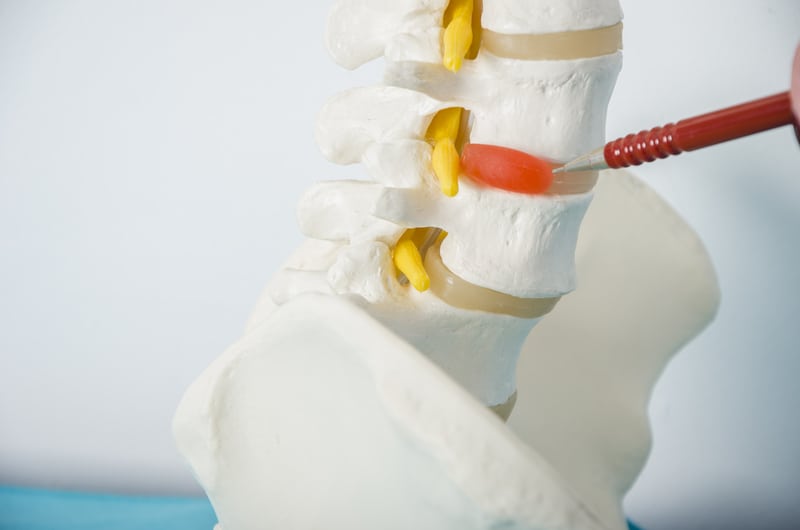
- Difficulty walking or standing
- Weakness or numbness
- Loss of bowel or bladder control
In many cases, surgery involves only removing the protruding portion of the affected disc. It is rare that the entire disc is removed. However, if removing the entire disc is necessary, the vertebrae may need to be fused together. This can be done with metal hardware that will provide your spine with stability. In very rare cases, a surgeon may suggest that the implantation of an artificial disc is necessary.
To learn more about our herniated disc treatment approach, contact our office today. We work with you to determine the best option for treatment that will improve your overall quality of life and fix the issue directly, rather than just mask your symptoms with a short term approach. If the source of your back pain is not due to a herniated disc, we can pinpoint the problem and develop a treatment plan for you that targets the source of your back pain and gets you back to your regular activities quickly.
